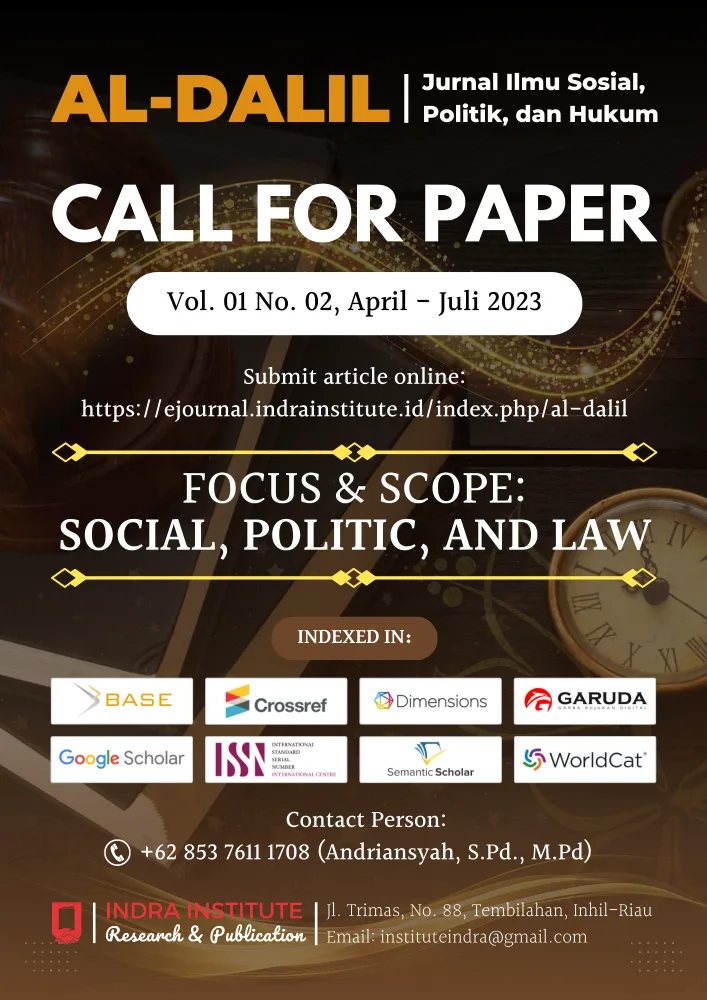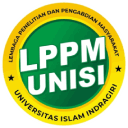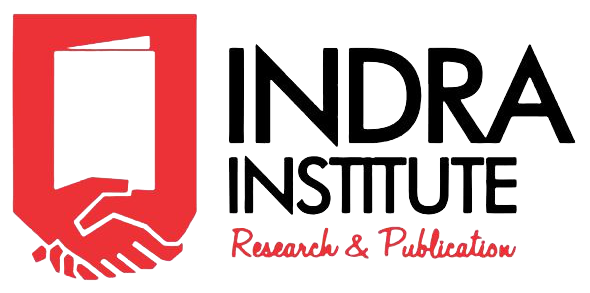| ADDITIONAL MENU |
|---|
| EDITORIAL TEAM |
| REVIEWER TEAM |
| JOURNAL INFORMATION |
| AIMS AND SCOPE |
| ARTICLE PROCESSING CHARGES |
| INSTRUCTIONS FOR AUTHORS |
| OPEN ACCESS STATEMENT |
| PEER REVIEW POLICY |
| PUBLICATION ETHICS |
| COPYRIGHT & LICENSING |
| COPYRIGHT TERMS |
| LICENSE TERMS |
| REQUIRED TOOLS |
| TEMPLATE JOURNAL |
| PLAGIARISM CHECKER |
| MENDELEY |
Publication Ethics
This page contains publication ethics for all parties involved such as Authors, Editors, and Bestari Partners.
The scientific publication code of ethics basically consists of three ethical values:
- Neutrality.
Everything that is done is objective and not influenced by individual interests; - Justice.
Give equal rights and obligations to all elements based on their roles; - Honesty.
Free from duplication, fabrication, falsification and plagiarism in publications.
Author Responsibilities:
- Reporting Standards.
The author must present an accurate report of the research conducted, as well as write an objective discussion of the significance of the research. The data used must be presented accurately in the article. An article must contain sufficient details and references so that others can use and implement what the author did. If there are reports of fraud or intentionally providing inaccurate information, then this is unethical behavior and unacceptable. - Data Access and Retention.
Authors are asked to provide pre-processed data (raw data) related to the article for use in the review process, and must be prepared to provide public access to this data (based on the ALPSP-STM Statement on Data and Databases). If possible, the author should save the data after publication. - Originality and Plagiarism.
The author must ensure that what is written is completely original and is the result of his own work. If the author uses the work and/or words of another person, the author must ensure that it has been properly quoted. - Multiple, Redundant and Concurrent Publishing.
An author may not publish articles that describe the essence of the same research in more than one journal or major publication. Submitting the same article to more than one journal simultaneously is unethical and unacceptable publishing behavior. - Acknowledgment of Reference Source.
Authors must give proper acknowledgment of the work of others. Authors should cite publications that have been influential in the research they report. - List of Article Authors.
Authors should be limited to those who have made a significant contribution to the conception, design, conduct, or interpretation of the research being reported. Everyone who has made a significant contribution must be listed as a co-author. Persons or other parties who have participated in certain substantive aspects of the research project, they must be recognized or registered as contributors. Corresponding authors must ensure that all suitable authors are listed in the article and there are no inappropriate authors. Corresponding authors must ensure that all authors have seen and approved the final version of the article and have agreed to publication. - Information Disclosure and Conflict of Interest.
All authors must communicate any conflict of interest, whether substantive or financial, that might be created to influence the results or interpretation of the study. All sources of financial support for the research must be submitted. - Fundamental Errors in Published Works.
When the author finds a significant error or inaccuracy in a published article, the author is obliged to immediately notify the editor of the journal or publisher and work with the editor to withdraw or correct the article. - Hazards and Human or Animal Subjects.
If the work involves hazardous chemicals, procedures or equipment in use, the author must clearly identify these in writing the article.
Editors Responsibilities:
- Justice.
The editor evaluates the authors' articles without regard to the authors' race, gender, sexual orientation, religious beliefs, ethnicity, nationality, or political views. - Confidentiality.
The editor and any editorial staff may not disclose any information about the submitted article to anyone other than the author, reviewers, prospective reviewers, other appropriate editorial boards, and appropriate publishers. - Information Disclosure and Conflict of Interest.
Articles that are not published for publication due to rejection or something else, may not be used by the editor for their own purposes without the written consent of the author. - Publication Decision.
The editor of the Indragiri Multidisciplinary Research Journal is responsible for deciding which articles should be published. This decision is obtained based on the level of suitability or validation of an article and how important the article is for other researchers and readers. Editors are guided by the policies of the journal's editorial board and are limited by applicable legal provisions, such as defamation, copyright infringement and plagiarism. The editor may confer with other editors or reviewers in making this decision. - Article Review Process.
The editor must ensure that every article submitted has been checked for originality first. Editors must organize and assign bestari partners fairly and wisely. The editor must explain the process of reviewing an article in the "For Author" information section. The editor must determine a bestari partner who is qualified and in accordance with the field of knowledge used in the journal.
Reviewer Responsibilities:
- Contribution to Editorial Decisions.
Bestari partners assist editors in making editorial decisions and can assist writers in improving the quality of articles through editors by providing constructive comments. - Immediately Respons.
Any reviewer who is assigned, but feels that he does not meet the requirements/interest in reviewing the article, or does not have enough time to study it, must immediately notify the editor and withdraw from the review process. - Objectivity Standards.
Reviews must be carried out objectively. Personal criticism of the author should not be conveyed. Reviewers must state their views clearly with supporting arguments. - Confidentiality.
Every article received for review must be treated as a confidential document. Articles may not be distributed or discussed with others except with the permission of the editor and author. - Information Disclosure and Conflict of Interest.
Information or ideas obtained in the review process must be kept confidential and not used for personal gain. Reviewers may not make decisions that are influenced by conflicts of interest due to competition, collaboration, or other relationships and connections with one of the authors, companies, or institutions related to the article. - Acknowledgment of Reference Source.
The reviewer must identify references that have not been cited by the author. A statement that observations, derivations, or arguments have been previously reported must be accompanied by relevant citations. The reviewer must also state to the editor if there are substantial similarities or overlap between the articles being reviewed and other articles based on the reviewer's knowledge.









